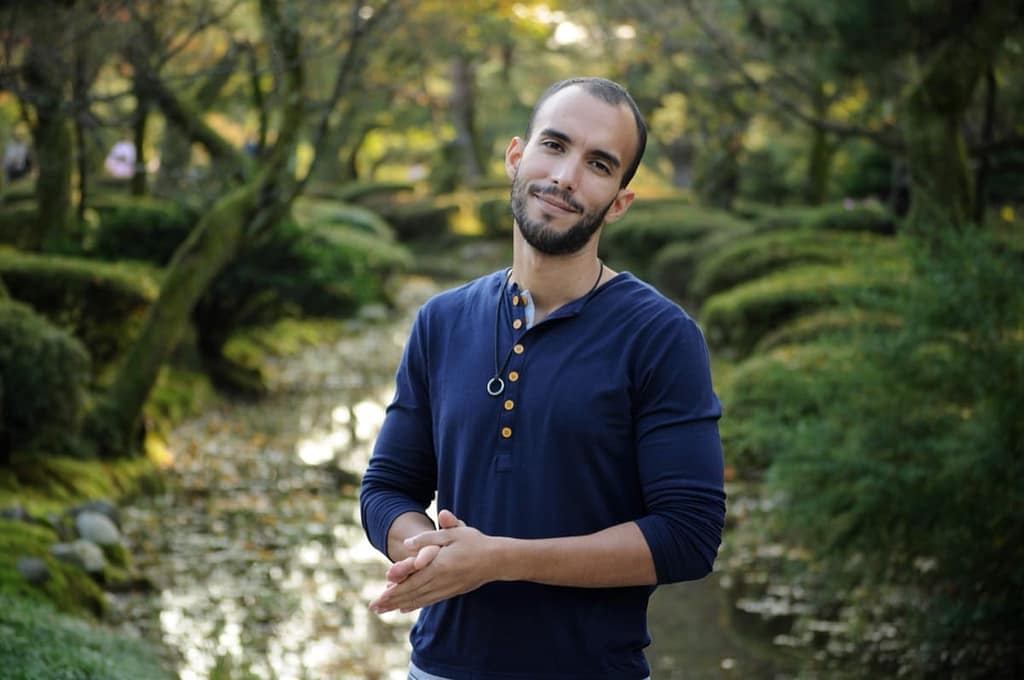Healing can often be a silent, sneaky process. It surprises you one random Tuesday when you wake up and realize the searing pain and gaping void you’ve learned to live with is no longer there — or at least is so much smaller than before.
That pain, once all-consuming, becomes background noise. And as it fades, you start noticing how it’s shaped you. You act differently. You carry yourself with more steadiness. You speak with a tone that’s softened by experience and thickened with empathy.
Today, I want to talk about how a kind and patient form of healing — a silent healing — freed me from the painful shackles that life and my own immaturity had bound me with.
Making Peace With the Inner Critic
There’s something profoundly cathartic about finally holding yourself with the same love and care that you have always given those you love and hold close. Experiencing it for the first time it’s… transformative.
It’s like realizing that the strict teacher you feared was secretly rooting for you all along. That they weren’t out to get you — they were guiding you in the only way they knew how. A bit like Snape in Harry Potter, if I’m being honest.
That’s how I experienced my truce with my inner critic. The enemy turned friend — the one who used to yell the loudest — became a quiet protector. A wounded version of me, doing their best to keep me safe.
Why We Turn on Ourselves
You probably know the voice I’m talking about.
The one that berates you when you fall short. The one that whispers you’re not enough when you’re rejected. That voice isn’t just cruelty — it’s protection. A distorted, outdated form of love.
You might be wondering how a voice that only berates you helps your inner child feel safe.
Well, it relates to what you experienced as a child and how you learned to cope with it.
Most of the negative traits that the inner critic has are supercharged remnants of your traumas or the coping mechanisms you adopted to survive.
As children, we adopt whatever stories help us make sense of our environment. If we weren’t loved unless we were quiet, useful, or perfect, we internalized that. Because to a child, love equals survival. So, we created coping mechanisms, beliefs, and behaviors that made us feel safe — even if they weren’t true.
Why? Because the brain likes things to make sense — an orderly world is just easier to survive in. So, we continue to apply outdated, maladaptive mechanisms and beliefs well into adulthood. The brain is just trying to keep us alive.
If we’re more likable, more well-behaved, more useful, we’ll be loved. And if we’re loved, we’ll survive. That’s the formula our inner critic still tries to follow — long after we’ve outgrown it.
The Challenge of Adult Healing
Understanding this is, of course, a crucial step in your healing journey, and it usually requires you to seek the help of professional therapy to really come to terms with it and overcome it. But this is not the whole expedition. Life has a lot more in store for you after childhood. Life throws curveballs we couldn’t have prepared for: break-ups, unforeseen setbacks, tragic accidents, loss, death.
It takes a tremendous amount of effort and courage to be a well-adjusted adult. No one comes unscathed. For most of us, it will take our whole life to even begin to understand ourselves, forgive, move on, rediscover who we are, and get a good grasp of what a healthy life is for us — particularly in this modern world.
This past year, I’ve been walking that road. Alone in a new city, trying to build a life from scratch without support. I felt lost and directionless. I truly believed I had no future.
Parenting Yourself: A Lifelong Job
Frankly, I wasn’t really caring for myself. I was barely surviving. I was doing my best to not just let myself go. To get out of bed every morning and not abandon myself the same way I felt others did. I had an unfathomable amount of work to do on my healing journey, and I wasn’t really up for the task, but I had no choice.
This healing process involves learning how to parent yourself and unlearn the old programming and behaviors you have adopted, which can be a messy process. It demands tremendous patience and commitment to your own healing. It asks for faith in the process and, most importantly, doesn’t give you a timeline or guarantees.
I know it sounds like the worst deal in history, but hey, the payoff is invaluable, right?
I know it can be demoralizing to feel like you are not making progress. It’s hard to see how things are changing when what’s changing is you. However, if you continue to show up, healing will happen.
A New Inner Dialogue
I think what really made the most significant difference for me was that I chose to be kind at every step.
Kind to myself and to others. Even those that caused the hurt.
That attitude and behavior helped reeducate my inner protector. Helped me make peace with things that were outside of my control.
That patience, that kindness, was like a fresh script that played against the old one. A calm and peaceful afternoon in a hectic day that slowed my inner self down and taught me that there was a healthier way of being.
Over time, old patterns were gradually forgotten, and new perspectives emerged. The beliefs that were fundamental to my past self no longer held as much power, and my past identity began to loosen its grip. I was still stuck in deep depression and struggling to find purpose, but the groundwork was being laid. Even though I didn’t understand it.
Recognizing Silent Healing
And then, one day, it was gone.
The trauma response. The mental noise. The tightness in my chest. The chains were gone!
Well, not gone gone. But it was faint enough that I suddenly became aware of its absence.
Healing had crept in silently, and it came without fanfare or epiphany. A silent healing. A peaceful calm that vanished the chaos that I had gotten accustomed to.
Gone were the feelings of tetheredness to the past, the endless revisits to trauma, and the desperate search for wholeness in replacing what was lost. Now, the present felt like a pleasant gift that could be enjoyed without guilt. Memories are recognized for what they are — artifacts of the past — and are seen for their precious role in shaping me into who I am without holding me back. They are cherished with kindness and understanding of the reality that they involved people, imperfect humans who were doing the best they could.
There was no longer a yearning for what could have been but an excitement for what can be, what I can make of the now. The fear of possibilities no longer holds me still. Now, the excitement of a life fully in my control, where I can spend my energy and time on what matters to me, is what gets me out of bed in the morning. No person holds the key to the chains holding me from living the life I dreamed of because, well, there are no keys, and there are no chains. There never was.

Living Without Chains
I’m not saying that it was easy. There was a lot of self-hatred and close calls. There were moments when I didn’t think living was bearable anymore.
And if you’re there, believe me, I feel you.
However, choosing to be kind and act with patience and forgiveness, even when it’s challenging, will be your most effective tool for navigating this.
If You’re Still In It
I’ll be honest. I don’t know how some people can be great parents to others when being a good parent to yourself already feels so depleting.
I wish I could give you a step-by-step guide. I wish I could outline the milestones, the rituals, the exact practices that led me here. But some journeys can’t be condensed into a formula. Sometimes, all you can say is that it takes time. It takes faith.
A Quiet Ending
So, this is where I am right now as I write these words to you.
Do I still feel sad? Yes, and in a way, I always will. I will always cherish the memories that were close to my heart and lament what could have been but didn’t.
In a way, I believe all mature adults carry a level of melancholy that can only be understood by them. A melancholy you can recognize in one another when you let your guard down. But it doesn’t have to be sad; it’s just the natural side-effect of maturing and doing the work of healing from trauma.
I hope silent healing comes to you. I hope it finds you on some random Tuesday. And when it does, I hope you greet it with kindness and a soft exhale.
You deserve to be free. You deserve to feel calm.
I’m proud of you.
I see you




